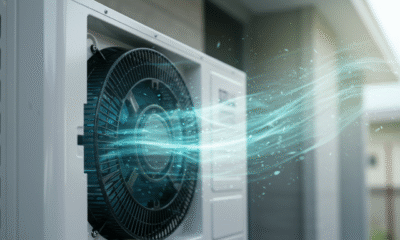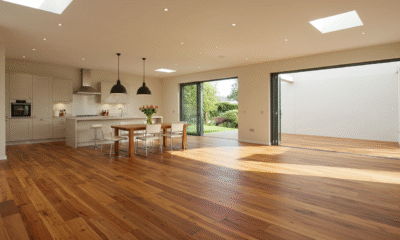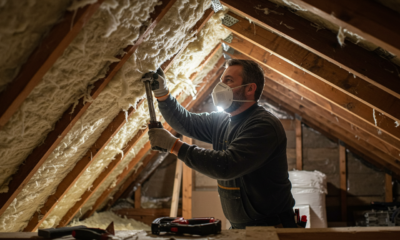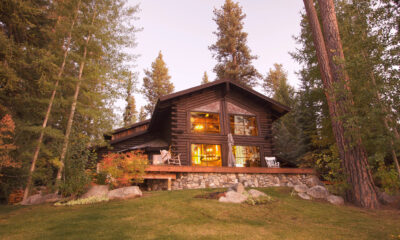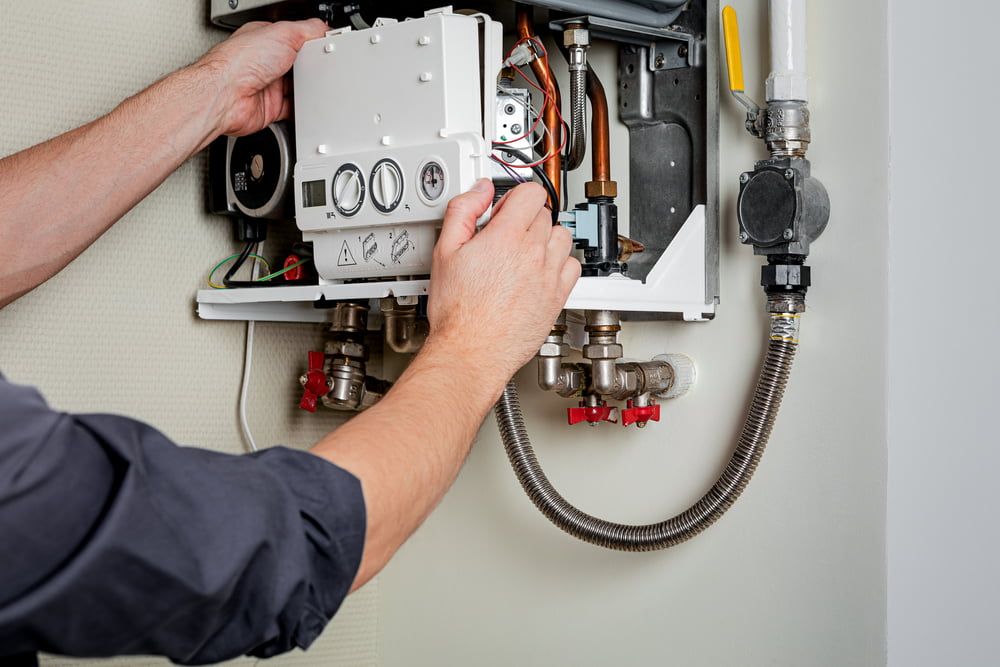
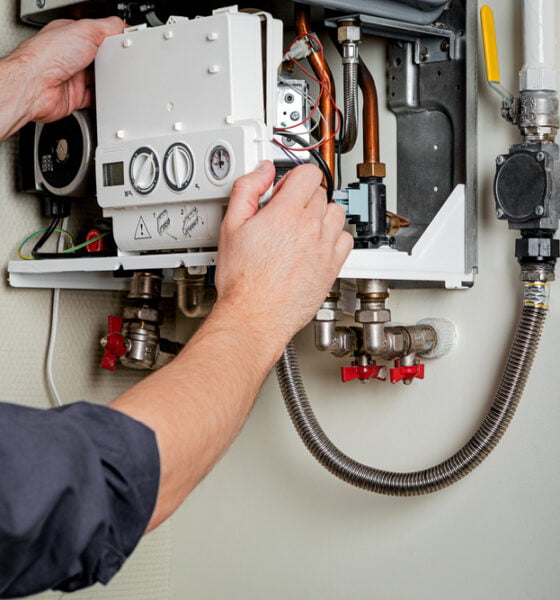
Energy
Benefits of Upgrading to Eco-Friendly Central Heating Systems
As we pointed out in the past, there are a variety of technologies that can help make your home green. However, some of them have a much larger impact than others.
One of the most important things that you can do is upgrade to a more modern heating system. The newer central heating systems on the market are more efficient and better for the planet. Of course, heat pumps are also good for the planet, but you may not be able to afford one. Therefore, a boiler replacement may be the next best thing.
Upgrading Your Heating System Can Make Your Home Eco-Friendlier… And Has Other Benefits
Are you tired of dealing with an old, unreliable boiler that just can’t seem to keep up with your heating needs? Have you noticed your energy bills creeping up without any change in usage? Are you fed up with the constant blinking and delays in heating your home? If the answer is yes, it is time to say goodbye to your outdated boiler and invest in a newer, more efficient model.
An outdated and inefficient heating system isn’t just bad for the planet. It will also cost you a lot more in energy. Therefore, upgrading to an eco-friendly central heating system is the best idea all the way around.
Imagine coming home to a warm and comfortable house without having to worry about a large carbon footprint, high energy bills or constant repairs. A boiler replacement will not only give you peace of mind, but it will also be a wise investment in the long run. It will improve the overall performance of your heating system, significantly lower your annual energy costs and reduce your carbon footprint.
An old boiler’s efficiency can deteriorate over time due to wear and tear or simply because it is an outdated model already. As a result, an old boiler’s efficiency could be as low as 60-70%. This means that for every 100 units of fuel used, only 60-70 units will be effectively transformed into heat for your home. This is a terrible tradeoff for the planet and your wallet.
In contrast, newer models use less fuel to achieve the same result, resulting in a much higher efficiency rate. This means that for the same amount of fuel used, a newer boiler will produce more heat and consume less energy.
This means lower energy bills and also a reduction in carbon emissions. In addition, a new boiler will also be more reliable and require fewer repairs, providing you with peace of mind and long-term savings.
Here is a quick overview of what you can achieve if you replace your old boiler:
- Reduce energy bills and save money
- Improve your home’s energy efficiency by up to 30%
- Increase your property’s value
- Improve safety (by preventing dangerous gas leaks, such as carbon monoxide)
- Reduce your house’s carbon footprint
What happens during a boiler replacement?
When installing a new boiler, the first thing an engineer should do is protect the area where the work will be done by covering carpets and surfaces. It’s also important to clear the area of any fragile items, appliances, or furniture to prevent accidental damage.
The old boiler will be disconnected from the gas and water supplies before it is removed. This is crucial to ensure that everything is safe and the work can be carried out. The engineer will turn off the gas supply to the old boiler and disconnect the gas line from the unit. They will also turn off the water supply to the old boiler and disconnect the water lines. Once the old boiler has been disconnected, it can be safely removed.
Before the new boiler is installed, the technician will clean the heating system. They will remove any debris, such as rust, limescale, and sludge. These materials can accumulate over time, and if left in the system, they can cause damage to the new boiler and decrease its efficiency. Engineers will use specialised equipment to flush the system and remove any debris.
Once the system is cleaned, the installer will adjust the pipework or reconfigure it as needed. This step is important to ensure that the new boiler is properly connected to the system and that it will function efficiently.
The technician may also need to adjust the size or position of the pipes to accommodate the new boiler, or they may need to reconfigure the entire system to optimise the flow of water and heat. Additionally, they will check for any leaks or damage in the pipes and repair them before connecting the new boiler.
Finally, the new boiler will be placed in the designated location and connected to the water outlets, mains supply, and radiators. Depending on the type of boiler being installed, the technician may also connect the new boiler to additional components such as storage tanks or add accessories such as a system filter or a smart thermostat.
After the boiler installation is complete, the system will be thoroughly inspected and tested to ensure that it is operating safely and efficiently. The following steps are typically taken during this process:
- Visual inspection of the boiler and its components to ensure that all parts have been installed correctly and that there are no visible signs of damage.
- The boiler’s combustion process will be tested to ensure that it is operating within safe and efficient parameters. This may include measuring the carbon monoxide (CO) and oxygen (O2) levels in the exhaust gases, as well as checking the temperature and pressure of the boiler.
- Checks on the boiler’s safety controls, for example, the pressure relief valve and other safety devices.
- Inspection of the boiler’s flue and venting system to rule out blockages or leaks.
- The engineer will start and operate the boiler to ensure that it is functioning correctly.
Once all tests are done and all issues are addressed, the boiler will be deemed safe for operation and will be ready for use.
Boiler Replacement Process Step by Step:
- Step 1: Work area preparation (covering surfaces and clearing space)
- Step 2: Old boiler cut off from gas and water supply
- Step 3: Old boiler removal
- Step 4: Clearing out the heating system
- Step 5: Adjusting the pipework (or reconfiguring it)
- Step 6: New boiler installation (including gas and water connections)
- Step 7: System test
Eco-Friendly Homes Should Upgrade to Eco-Friendly Heating Systems
Old, unreliable boilers can be costly, bad for the planet and frustrating to deal with. High energy bills, a large carbon footprint and constant repairs can be a thing of the past by investing in a newer, more efficient model. A new boiler will improve the overall performance of your heating system, significantly lower your annual energy costs, and reduce your carbon footprint. It is a great way to make your home eco-friendlier and save costs.
The process of replacing a boiler, although it may initially seem daunting, is actually quite simple for a professional. Certified heating engineers will ensure that the installation is smooth and that all safety guidelines are adhered to.


 Environment12 months ago
Environment12 months agoAre Polymer Banknotes: an Eco-Friendly Trend or a Groundswell?

 Features11 months ago
Features11 months agoEco-Friendly Cryptocurrencies: Sustainable Investment Choices

 Features12 months ago
Features12 months agoEco-Friendly Crypto Traders Must Find the Right Exchange

 Energy11 months ago
Energy11 months agoThe Growing Role of Solar Panels in Ireland’s Energy Future


